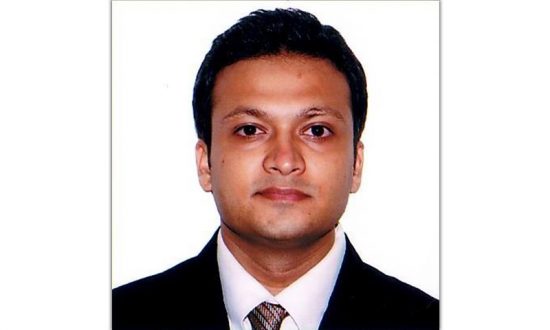With more than a decade of experience in the EdTech domain, Sunil currently leads TPL’s Online Executive Education (India) Division. Focused on business outcomes and results, Sunil’s responsibilities include sales, marketing and business development, thereby driving profitability and growth for the Executive Education division. Sunil has earlier been associated with Genius Pro School Pvt. Ltd., Metro Cash & Carry Ltd., Bennett, Coleman & Co. Ltd., and Hutchison Maxtouch (P) Limited in his professional career.
The benefits of acquiring and building holistic managerial competencies are important to increase an individual’s chances of success in the business world. That’s why MBA is one of the fastest-growing postgraduate degrees as it focuses on developing managerial and leadership competencies. It allows professionals to explore and specialize in various skills and enables them to transition into leadership roles within their organizations. Most companies tend to prefer candidates with an MBA degree for management and leadership roles. Some companies even sponsor the entire MBA programme to groom their high-potential employees for managerial roles. This is because an MBA, compared to other degrees, focuses on hands-on learning and corporate upskilling.
Often, the major challenges for experienced professionals who wish to pursue postgraduate management education are their professional and personal commitments. For most professionals, it is not feasible to opt for a full-time management degree and leave their jobs. Such a paradigm creates a skills vacuum that working professionals are unable to fill in the face of rapidly changing global business paradigms and disruptive technologies.
Shortage of Managerial Leaders
Today, 96% of global Fortune 100 companies have MBA graduates in their near-term hiring plans. This means the most innovative and desirable companies out there are going out of their way to hire new employees who have put the time and effort into graduate-level business education. When it comes to future returns of an MBA degree — calculated as the difference between the average 10-year earnings of a bachelor’s degree-holder and an MBA graduate— the difference in pay can be as high as 300%. This means acquiring postgraduate management education plays an important role in career advancement.
A recent study cited by the Harvard Business Review claims that nearly 78% of leaders believe that having managerial mentors in the workplace is essential. However, only 37% of them report having one, which means there is a shortage of managerial leaders.
MBA Designed for Working Professionals
Over the years, MBAs specifically designed for working professionals have gained wide acceptance due to the value they offer. These MBA programmes, also known as Executive MBA or MBA for Working Professionals, are tailored to meet the needs of professionals who wish to continue their full-time jobs and simultaneously pursue an MBA on the side. These programmes are often customized for seasoned professionals or those who possess at least 2-3 years of experience in their fields. The class sessions last for long durations, allowing coursework to be compressed into a fewer number of days. And while a typical MBA for working professionals requires serious commitment, the returns are higher compared to most other options. Getting a higher salary, landing a management leadership position, developing a robust professional network, or even becoming a business founder are just a few of the advantages of pursuing an executive MBA.
The COVID-19 pandemic has also restructured how institutions impart management education. Universities are adopting educational technologies to create virtual immersive learning environments. The most lucrative Executive MBA programmes and institutes are the ones that have successfully remodelled and adopted a Blended Learning model that is capable of delivering quality management education. In India institutes like IIM Kozhikode, SP Jain School of Global Management, NMIMS School of Business Management, and ISB Hyderabad are among many pedigreed institutes that have built dynamic Executive MBA programmes.
The IIM Kozhikode Case Study
While most B-Schools are now subscribing to digital transformations, IIM Kozhikode has successfully pioneered its own Blended Learning model for over a decade, incorporating simulation-based learning, live lectures, virtual incubation programmes, Industry 4.0 projects, and industry-based case studies. The programme serves as the ideal case study for what executive education programmes will look like in the future. Combined with a world-class faculty and a robust digital infrastructure, IIM Kozhikode’s MBA for working professionals has a futuristic appeal to it. The institute has made groundbreaking progress in customising programmes geared towards the needs of working professionals. Under its ‘Your Programme, Your Preference’ option, working executives from across India can choose from the two different sessions of delivery available. The option provides aspirants with greater flexibility and customization, enabling them to be in control of their time.
With a curriculum design that reflects the best of management theory and practice, IIM Kozhikode’s MBA for Working Professionals imparts management education with an innovative curriculum and a proven pedagogy. The programme offers a holistic understanding of management functions by focussing on six different disciplines. It comprises both online and on-campus modules to provide executives with the cross-functional expertise required to formulate growth strategy and successful organizational transformation.
The Future of Executive MBAs
The COVID-19 pandemic has made institutes innovate their approach towards imparting management education. Various top-tier institutes in India have started offering MBAs for working professionals while adopting educational technologies to ensure a seamless working experience. In India, many pedigreed institutes recorded 100% placements through a completely virtual hiring process. While ten years ago, it would have been impossible to imagine institutes would hold virtual placement drives, today we have examples from IIM Bangalore, IIM Calcutta, IIM Lucknow, IIM Kozhikode, and many other top management institutes who witnessed a 100% placement success through their virtual placement drives.
The future of management education will be where Blended Learning becomes the core component of the programme pedagogy. Educational technologies will be at the forefront of creating an immersive learning environment.




